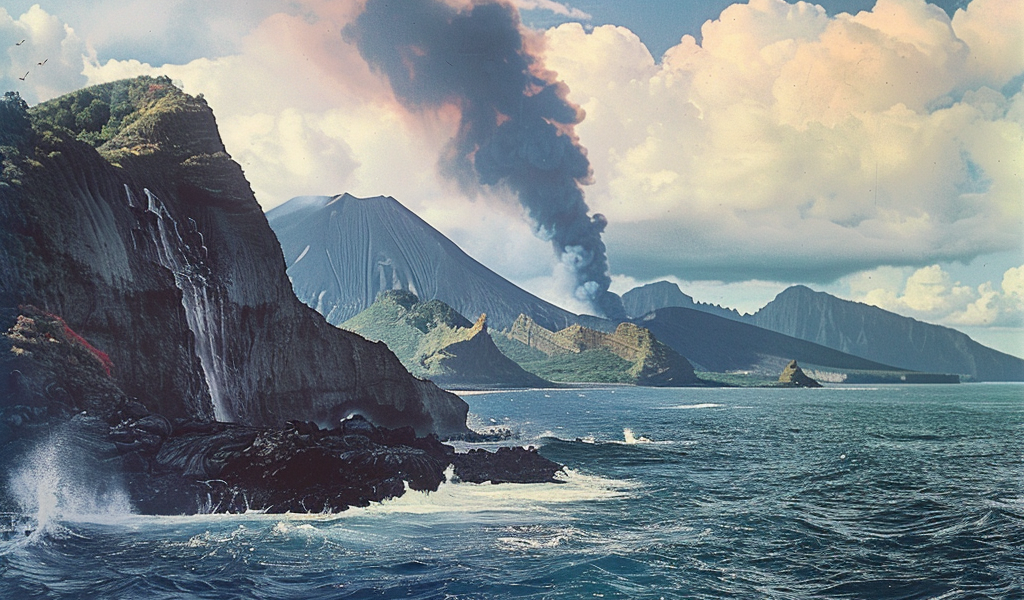Recent research has unveiled groundbreaking insights into the intricate relationship between ocean chemistry and volcanic activity in island arcs, shedding light on processes that have shaped our planet over the last two billion years. This study, a collaboration between the California Institute of Technology and the University of California, Berkeley, was published in the prestigious Proceedings of the National Academy of Sciences on October 18, 2024.
Island arcs, typically formed along subduction zones where one tectonic plate is forced beneath another, are pivotal in the development of continental crust. The research reveals that the strontium isotopic compositions of magmas originating in these island arcs have fluctuated in direct correlation with the strontium composition found in seawater throughout geological history.
Professor Claire Bucholz, a leading geologist involved in the study, emphasized the importance of understanding how different reservoirs on Earth interact over time. Subduction zones serve as critical interfaces between the ocean, crust, and mantle, making them ideal for examining these complex interactions, which have persisted for billions of years.
The study proposes a novel model explaining how seawater strontium is transferred to island arcs through hydrothermal alteration of the ocean floor. As the oceanic crust, rich in seawater chemistry, subducts into the mantle, it undergoes heating, releasing water-rich fluids and melts. These fluids carry the seawater-derived chemical signatures into the mantle, facilitating the melting of mantle rocks and the subsequent formation of magmas.
These magmas then ascend to the Earth’s surface, giving rise to island arc volcanoes, such as those found in the Aleutian Islands and other regions along the Pacific Ring of Fire. The magmatic rocks produced in these arcs retain a unique chemical fingerprint that reflects their oceanic origins, providing valuable information about the historical changes in ocean chemistry.
This research not only enhances our understanding of volcanic processes but also highlights the long-term interactions between the Earth’s surface and its deep interior. The findings underscore the significance of island arcs in the broader context of Earth’s geological history and the evolution of its crust.
As scientists continue to unravel the complexities of these interactions, the implications for our understanding of Earth’s geological processes and the factors influencing volcanic activity become increasingly profound. This study opens new avenues for research, inviting further exploration into the links between ocean chemistry and tectonic activity.
In summary, the study presents a compelling narrative about the dynamic interplay between oceanic and volcanic systems, illustrating how ancient processes continue to shape our planet’s geological landscape. The insights gained from this research not only contribute to our knowledge of island arcs but also provide a broader understanding of the Earth’s evolution over geological time scales.





